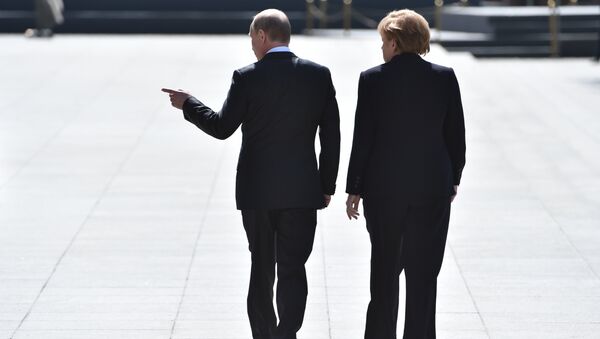The project, which involves the construction of two natural gas pipelines that will run through the Baltic Sea from Russia to Germany, is supported by German and Russian officials, but has drawn criticism from some countries as it will bypass eastern European states.
Russian gas company Gazprom signed a shareholders' agreement with the project's German, Austrian, French and Anglo-Dutch stakeholders in September, but has since received criticism from some EU member states.
#Russia and #Germany determined to build #NordStream 2, talks transcript says: https://t.co/ucnU4N9Lo5 @NatGasEurope pic.twitter.com/wjr2YYuE80
— Eurasia Center (@ACEurasia) November 23, 2015
Poland is leading the charge of eastern European states against the construction of the project, arguing that it would go against plans to diversify the EU's gas imports.
"Nord Stream 2 would be, above all, detrimental in geopolitical terms… for the purpose of exerting more political pressure and applying blackmail on the EU, its eastern member states and its eastern neighbors," Jacek Saryusz-Wolski, Polish member of the European Parliament, told the Financial Times.
However, the approach is sure to spark an angry rebuke from Berlin, who has been in support of the project to directly supply Germany and other western European states with gas, while bypassing many of the costly transit fees that would have come with transporting the resources through eastern European countries.
Nord Stream 2 will increase capacity from 55 to 110 billion cubic meters, makling Germany new transit route. pic.twitter.com/pmetv8EEeO
— Frank Knopers (@frankknopers) November 21, 2015
The new pipeline, which would run alongside the existing Nord Stream project, would also negate the risk of having European gas supplies disrupted, as was experienced in 2006 and then again in 2009 when gas transportation was halted over a payment dispute, which saw Moscow demand Kiev pay outstanding debts in excess of US$2 billion.
Gazprom and E.ON address implementation of Nord Stream 2 project: St. Petersburg hosted today a working meeting… https://t.co/wMJiUQOB4p
— Your OilandGas News (@YourOilandGas) November 30, 2015
Earlier this month, German media reported that the country Vice-Chancellor Sigmar Gabriel warned EU officials not to bow to pressure being applied by some states to sabotage the project.




